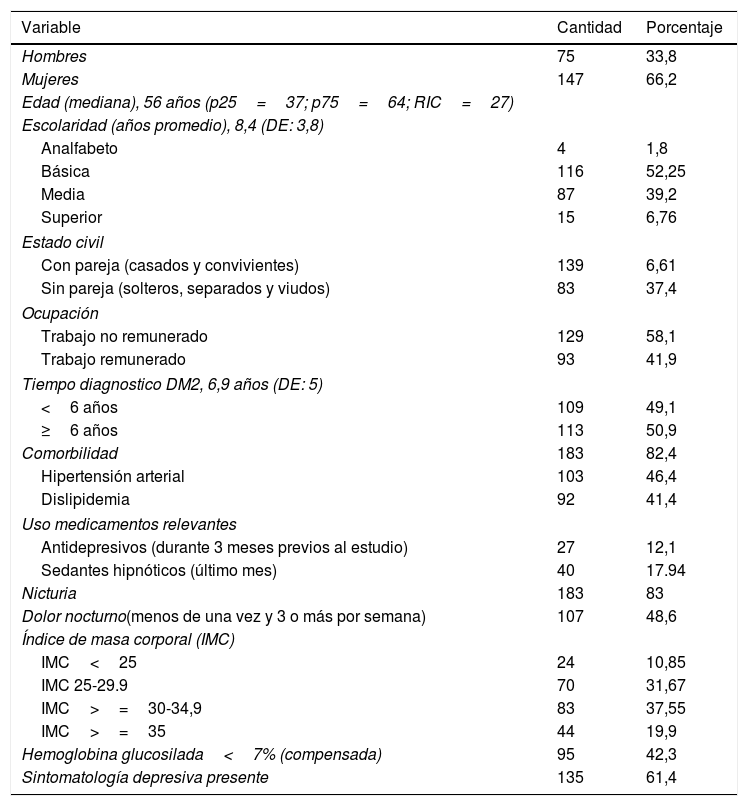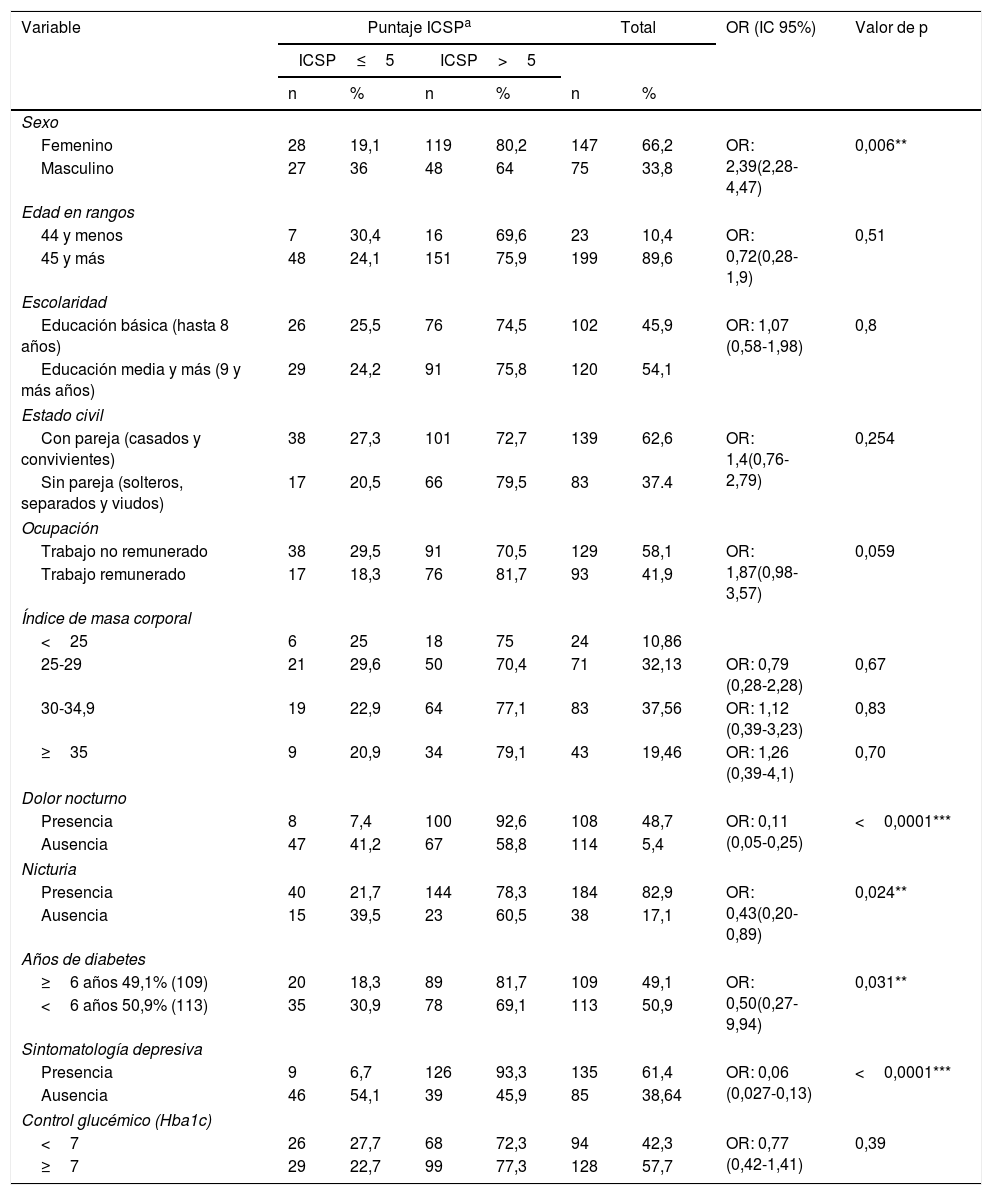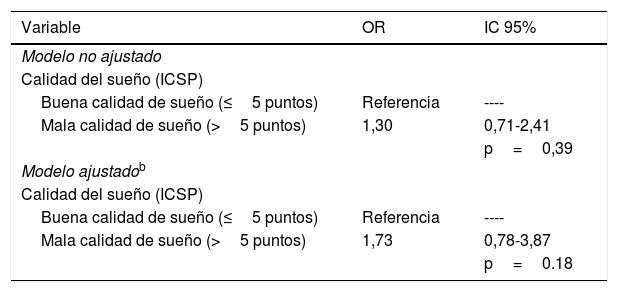La diabetes tipo 2 (DM2) es una de las enfermedades que causa mayor mortalidad prematura y discapacidad a nivel mundial. Las alteraciones del sueño se han asociado a la aparición de trastornos metabólicos y a mayores niveles de hemoglobina glucosilada en personas diabéticas.
ObjetivoEvaluar la calidad del sueño de personas con DM2 y su asociación con características sociodemográficas, clínicas y metabólicas.
MétodosEstudio observacional, transversal, analítico en 223 personas con DM2 entre 20 y 64 años controladas en un centro de atención primaria de salud.
ResultadosLa mayoría eran mujeres (66,4%), edad promedio 54,7 años y solo el 33% duerme las horas necesarias (7 a 9 horas). Un 57,7% se encontraba metabólicamente descompensado (Hb1Ac>7%). Un 75,2% de los participantes presentó problemas de sueño de diversa gravedad, que se asoció a ser mujer, dolor nocturno, nicturia, tiempo de diagnóstico de la diabetes y síntomas depresivos. Las personas con mala calidad de sueño tuvieron 73% más probabilidad de estar descompensados metabólicamente, sin embargo, este resultado no fue estadísticamente significativo OR=1,73 (IC: 0,78-3,87).
ConclusionesDestaca la alta frecuencia de mala calidad de sueño y descompensación metabólica en la muestra, lo que podría complicar la DM2. No es concluyente la asociación entre mala calidad de sueño y descompensación de la DM2. Futuras investigaciones contribuirán a dilucidar el papel del sueño en la compensación metabólica y en la prevención de trastornos metabólicos.
Type 2 diabetes (DM2) is one of the diseases that cause the highest premature mortality and disability worldwide. Sleep disturbances have been associated with the onset of metabolic disorders and increased levels of glycated haemoglobin in diabetics.
ObjectiveTo evaluate the quality of sleep of people with type 2 diabetes and its association with sociodemographic, clinical, and metabolic characteristics.
MethodsObservational, cross-sectional, analytical study of 223 patients with DM2 between 20 and 64 years old, controlled in a primary health care centre in Chile.
ResultsMost were women (66.4%), average age 54.7 years. Only 33% slept the required number of hours (7 to 9hours) to maintain health. Fifty-seven point seven percent were metabolically unbalanced (Hb1Ac>7%). Seventy-five point two percent presented sleep problems of varying severity, which were associated with being a woman, night pain, nocturia, time of diagnosis of diabetes, and depressive symptoms. Persons with poor sleep quality were 73% more likely to be metabolically decompensated, however, this result was not statistically significant: OR=1.73 (CI:78-3.87).
ConclusionsThe high frequency of poor sleep quality and metabolic decompensation in the sample stands out, which could complicate DM2. The association between poor sleep quality and DM2 decompensation is inconclusive. Future research will contribute to elucidating the role of sleep in metabolic compensation and in the prevention of metabolic disorders.










